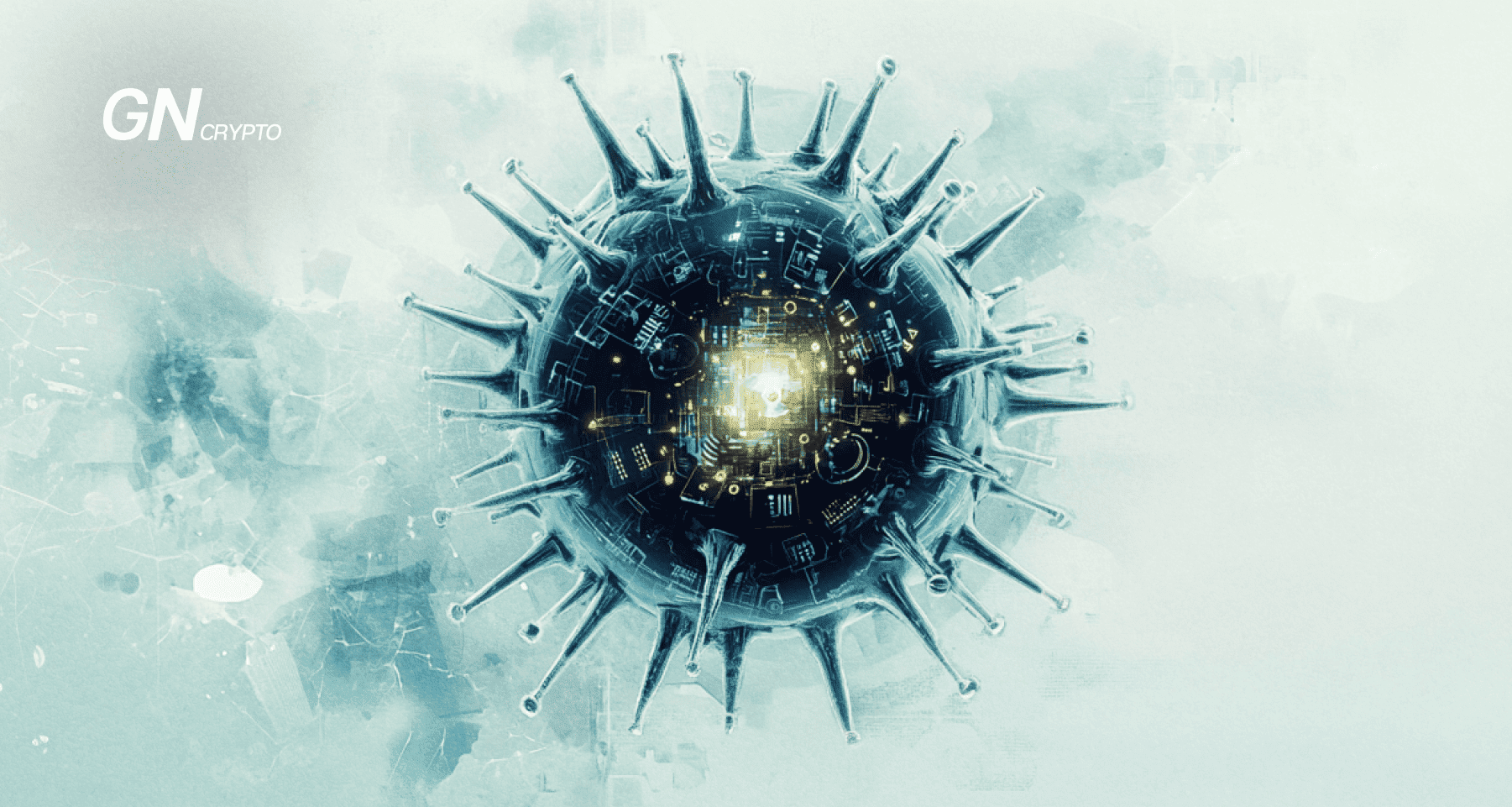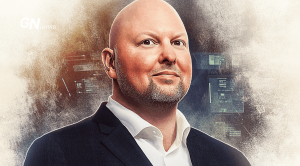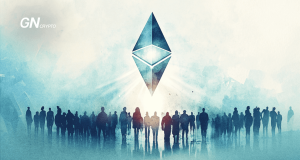Buterin Compares AI Development to the COVID-19 Pandemic

The rapid advancement of AI technologies has made the question of control and direction more critical than ever. Ethereum creator Vitalik Buterin proposes an alternative to unchecked techno-optimism, rooted in decentralization and protective measures.
On this page
In his latest essay, “d/acc: one year later,” Vitalik Buterin explores the concept of d/acc (decentralized and democratic, differential defensive acceleration) as a strategy to guide technological progress in a positive direction while mitigating the risks associated with AI and other potentially harmful innovations. Unlike indiscriminate acceleration, d/acc focuses on selectively advancing technologies that promote protection and decentralization of power.
What is d/acc?
d/acc (decentralized and democratic, differential defensive acceleration) is a forward-thinking strategy for technological development that addresses civilization-scale risks while aiming to create a safer and more equitable world.
To clarify its unique approach, Vitalik Buterin contrasts it with three other potential strategies:
- Standard Decentralized Acceleration
Often described as a “race without rules,” this approach prioritizes rapid, unchecked technological advancement across all areas without concern for long-term consequences. Decentralization here means that progress is driven by a diverse range of groups and communities, rather than a central authority.
A prominent advocate of this strategy is Marc Andreessen, co-founder of a16z, often characterized as a “tech optimist.”
In the context of AI, this approach risks creating superintelligent systems that humanity may ultimately be unable to control.
- Centralized Control for Safety
This strategy calls for strict oversight and regulation of technology, consolidating authority in a single centralized entity, such as a government or international organization, to mitigate potential risks.
While seemingly logical, history shows that centralized control often creates its own problems. For instance, the World Health Organization’s delayed acknowledgment of airborne COVID-19 transmission stifled grassroots initiatives and led to preventable deaths. Buterin argues that centralized authority inherently carries the risk of power abuse, making this approach far from ideal.
- Slowing or Halting Progress
This strategy proposes that the safest way to mitigate the risks associated with technology is to slow down or even halt its development entirely. However, in today’s interconnected world, where no single entity has absolute control, such efforts are bound to fail. There will always be individuals or groups working on technological advancements in secret, potentially creating even greater imbalances and risks. Ultimately, reverting humanity to a pre-technological era is neither feasible nor realistic.
Vitalik Buterin suggests that the concept of d/acc can be best understood through the lens of pandemic response.
Imagine the world confronting a new, even more dangerous strain of COVID-19 and choosing one of three conventional approaches.
- Uncontrolled Acceleration: This approach would prioritize speed above all else, rushing the development of treatments and vaccines without sufficient testing or consideration of side effects. The result could be the production of ineffective or even harmful solutions.
- Centralized Control: In this scenario, a single authority, such as the WHO, would make all decisions about treatment and prevention, ignoring local conditions and the expertise of on-the-ground healthcare providers. This would likely lead to significant delays and critical errors in care delivery.
- Slowing Progress: This strategy would mean abandoning the development of new treatments and vaccines altogether, leaving humanity defenseless. Such an approach would mirror historical pandemics when the lack of medical advancements led to catastrophic loss of life.
In this context, d/acc would involve:
- Rapid development of vaccines and treatments, backed by rigorous testing to ensure safety and effectiveness.
- Decentralized sharing of information about the disease, symptoms, treatments, and research findings.
- Open access to data on vaccines, medications, and the technologies used for their production.
The d/acc approach closely aligns with effective pandemic response strategies. Source: vitalik.eth.limo
Like combating a pandemic, d/acc emphasizes balancing speed, safety, and decentralization. It advocates for leveraging technology to address critical challenges while managing risks and relying on a distributed network of contributors.
Prosperity Requires Protection
Buterin has previously shared his optimistic vision for the future, particularly in the context of decentralized systems, where AI is seen as a tool rather than an autonomous agent, alongside progressive social technologies like pol.is and prediction markets. However, he now emphasizes that these ideas are not isolated, but interconnected parts of a unified philosophy.
He provides several examples to illustrate this connection. For instance, research focused on tackling the effects of COVID-19 could lead to breakthroughs in treating other diseases, like Alzheimer’s, and even in combating aging. In this way, technologies developed to survive a pandemic may ultimately contribute to the long-term prosperity of humanity.
Advances in miniature visualization tools, such as the Openwater project, have the potential to be used not only for cancer diagnosis and treatment but also for neurocomputer diagnostics, paving the way for new breakthroughs in brain research and neurotechnology. Additionally, privacy-preserving technologies like zero-knowledge proofs not only protect personal information but also enhance research capabilities, enabling the use of more data without the risk of leaks.
Buterin emphasizes that d/acc is not just about preventing the unchecked development of AI, but also about creating an environment that fosters prosperity. It's crucial to consider both aspects together, striving to develop technologies that ensure safety while opening up new opportunities for humanity.
He also argues that the main issue is the rapid pace of technological advancement, where rules that seem reasonable today could become obsolete tomorrow. For instance, while it currently seems that training the most powerful AIs requires vast resources, new methods may soon emerge that allow for creating equally powerful AIs at a fraction of the cost. This makes it unwise to base regulations on factors like training costs, as they will likely lose relevance in a short period.
Another major concern is the military. Militaries often operate outside the bounds of conventional laws and regulations, and Buterin believes they pose the greatest threat in the context of AI. Any restrictions imposed by governments are unlikely to extend to military applications, which is especially concerning for the future of humanity.
Related: Vitalik Buterin: Overcoming AI Risks Will Be a Challenge
Core Principles of AI Regulation
Vitalik believes that the foundation of AI regulation should be accountability for the consequences. If someone uses AI in a way that causes harm, they should be held responsible, much like the laws that apply to other sectors.
Buterin argues that responsibility should lie with the users, not the developers, since it is the users who control how the technology is applied. However, he acknowledges that users may not always be fully informed, so other options, such as holding intermediaries accountable—those who provide access to AI—could also be considered.
He also presents an unconventional idea: holding the owners of devices used by AI to cause harm accountable. In other words, if AI were to hack your computer and use it to launch an attack, you, as the owner, would be held responsible.
The second principle is the ability to pause the most powerful AI applications. Buterin suggests establishing a system that would allow these systems to be temporarily shut down if a catastrophic threat arises—essentially, an emergency stop.
Picture this: the hardware running the most advanced AI would have special chips that require weekly approval from several international organizations to remain operational. If a threat to humanity is detected, these organizations could withhold their approval, automatically suspending the AI's operations. This would provide time for careful consideration and necessary action.
Buterin believes that “vaccines” against uncontrollable technologies and viruses must be reliable. Source: vitalik.eth.limo
Who Will Fund the Implementation of d/acc?
Buterin argues that the goal should not be to completely halt AI development, but to create a robust system that can control its evolution and minimize risks. He stresses that international cooperation is essential, as attempts by any one country to dominate this space are destined to fail. Furthermore, he believes that implementing d/acc will require effective decentralized funding since traditional business models often clash with the nature of open-source projects.
He suggests that a funding mechanism for public goods, similar to the way private goods are financed in the market, will be necessary. This would allow developers to create high-quality open-source projects without compromising their values or the needs of users.
Many crucial projects today, such as vaccines and neurointerfaces, are patented, which limits access and creates unnecessary competition. Funding public goods could encourage more openness and collaboration, which is especially important in the context of the potential development of artificial general intelligence (AGI). Buterin urges the crypto community to actively explore and develop these mechanisms to prepare them for broader application in science and technology.
d/acc can help resolve the fundamental dilemma facing humanity’s future. Source: vitalik.eth.limo
Responsible Decentralization: The Key to Solving Humanity’s Challenges
Vitalik Buterin concludes his essay by reflecting on the challenges and opportunities humanity will face in the coming decades. While the rapid AI development presents significant risks, he believes the greatest threat lies in the diminishing level of global cooperation, as powerful corporations pursue narrow financial interests.
However, Buterin also sees reasons for optimism. First, we now have powerful tools to address these challenges. AI can be leveraged to create new technologies for governance, such as in finance. The internet, social networks, and cryptocurrencies have greatly improved our ability to coordinate globally. Advances in cybersecurity, software development, biotechnology, and our understanding of viruses open up new opportunities to enhance both our biology and the environment.
Second, the decline of influence from the “old guard” is creating space for a broad coalition of techno-realists, one that anyone can join.
Buterin’s central message is that access to new tools enables us to adapt and improve the world, while the principles of d/acc and liberal pluralism ensure that this progress will happen without compromising the freedom of others. He firmly believes that humanity can build a bright future while preserving both freedom and opportunities for growth.
Related: AI Terms Glossary
The content on The Coinomist is for informational purposes only and should not be interpreted as financial advice. While we strive to provide accurate and up-to-date information, we do not guarantee the accuracy, completeness, or reliability of any content. Neither we accept liability for any errors or omissions in the information provided or for any financial losses incurred as a result of relying on this information. Actions based on this content are at your own risk. Always do your own research and consult a professional. See our Terms, Privacy Policy, and Disclaimers for more details.




























